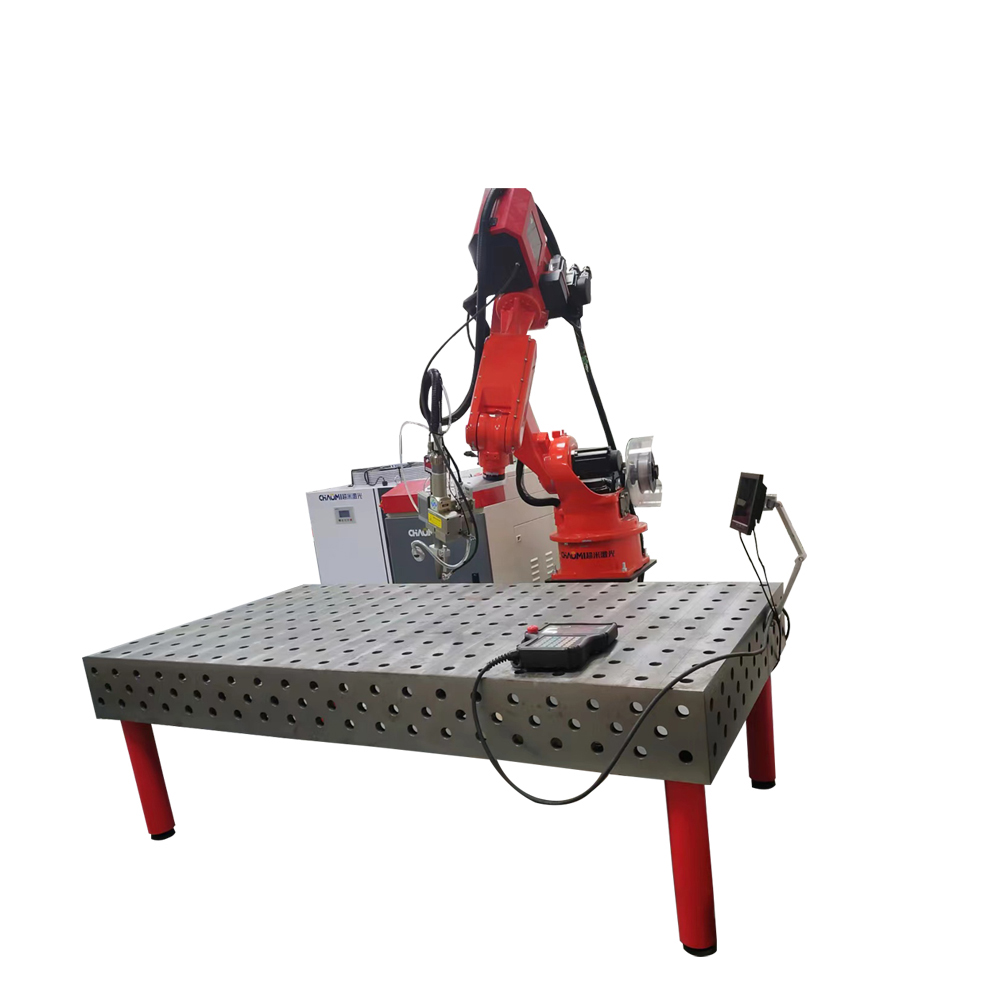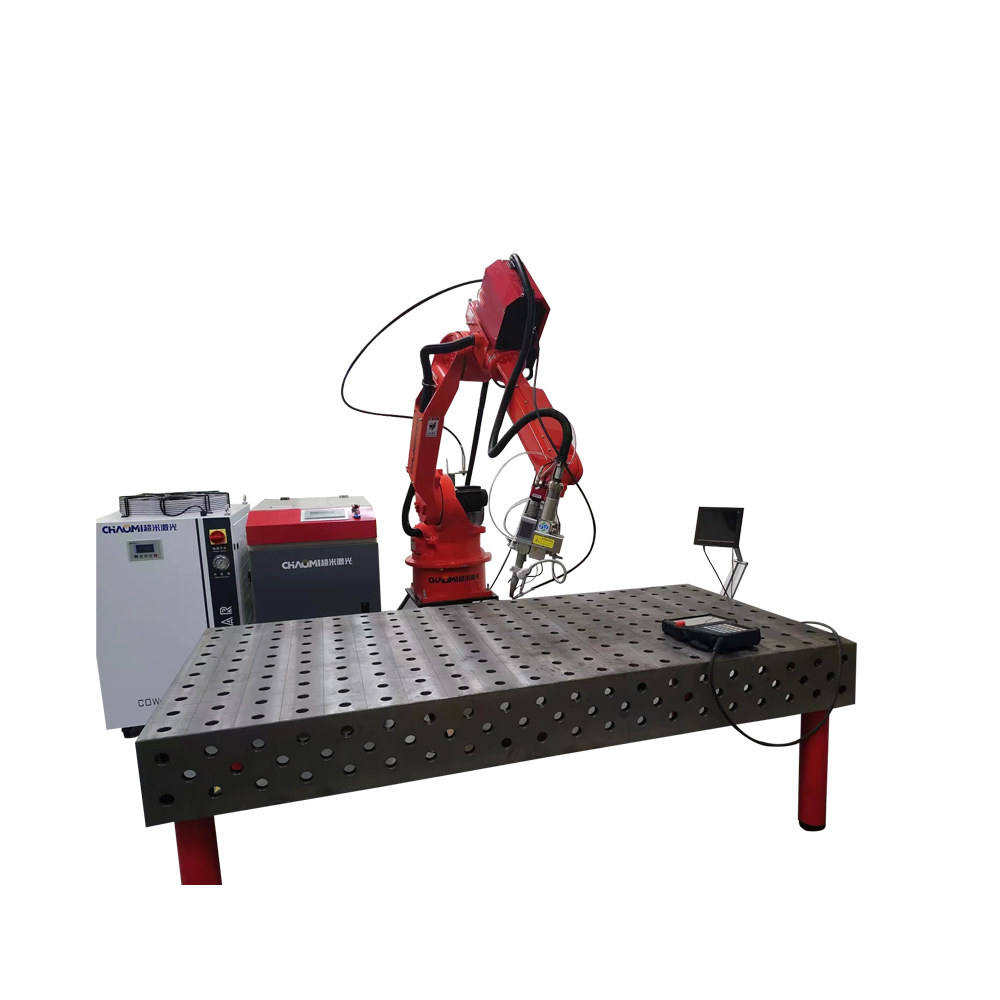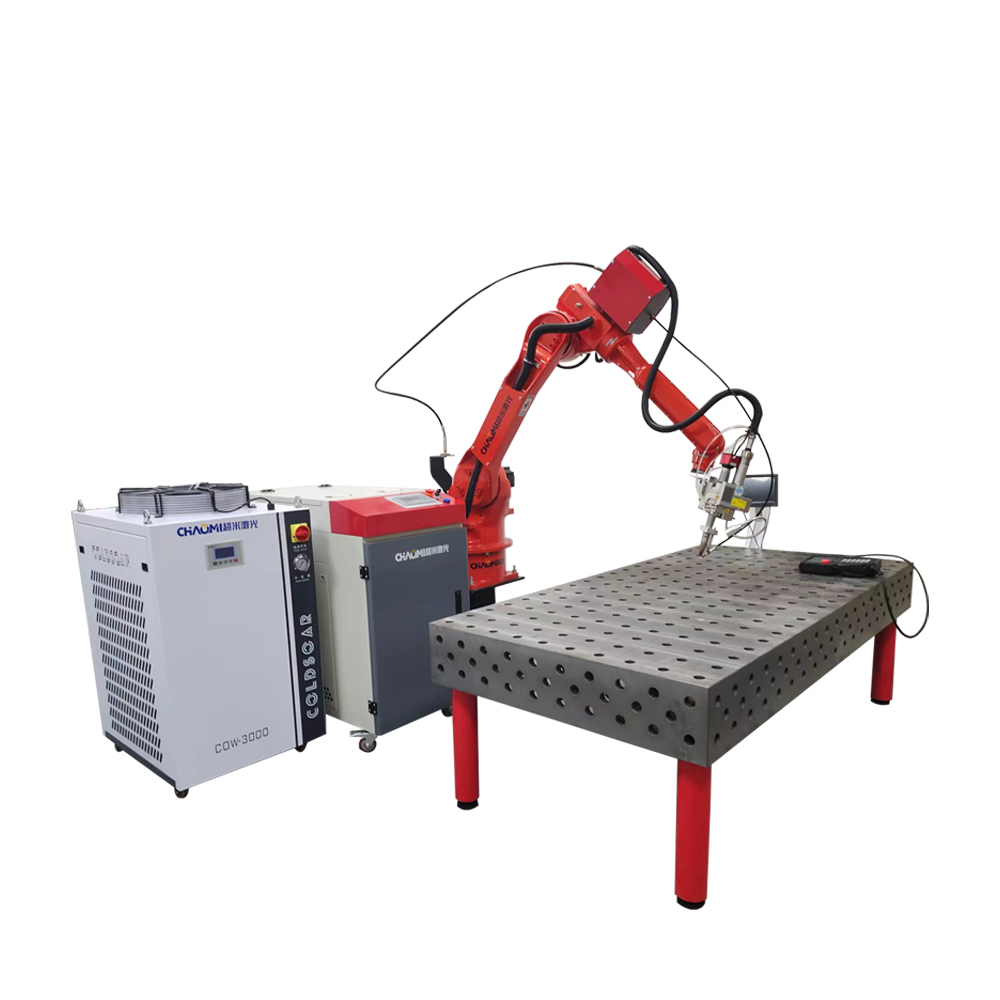Six axis robot laser welding machine-domestic
Mainly used for continuous welding of various metal plates (copper, aluminum, titanium, stainless steel, low carbon steel, etc.).
Application Industries: commonly used in industries such as hardware products, electronic components, automotive parts, instruments and meters, precision machinery, communication equipment, medical equipment, etc.
Product Features
Six axis robot laser welding machine
Application materials:
Mainly used for continuous welding of various metal plates (copper, aluminum, titanium, stainless steel, low carbon steel, etc.).
Application industries: commonly used in industries such as hardware products, electronic components, automotive parts, instruments and meters, precision machinery, communication equipment, medical equipment, etc.
Six axis robot laser welding machine:
Introduction of Six Axis Welding Robot Product Description
The six axis welder is a precision robot with a compact exterior structure. Each joint is equipped with a high-precision reducer, and the high-speed joint speed allows for flexible operations in a small workspace, such as welding, cutting, handling, palletizing, and assembly. It has flexible installation methods.
Core advantages of equipment welding
1. Efficient continuous operation
Support 24-hour uninterrupted work, welding speed far exceeds manual labor, and can quickly complete large-scale production tasks.
2. Accurate and controllable quality
Standardized welding processes ensure consistency in operations, with significantly better weld accuracy, stability, and aesthetics than manual labor, reducing operational errors.
3. Comprehensive cost optimization
In automated production mode, a single operator can manage multiple devices, significantly reducing labor costs and training investment.
4. Break through the bottleneck of employment
Replace the welding needs of special occupations and alleviate the shortage of technical workers in the industry.
5. Multi domain adaptability
Covering scenarios such as automobile manufacturing, aerospace, electronic equipment, furniture manufacturing, etc., to meet the welding needs of different industries.






